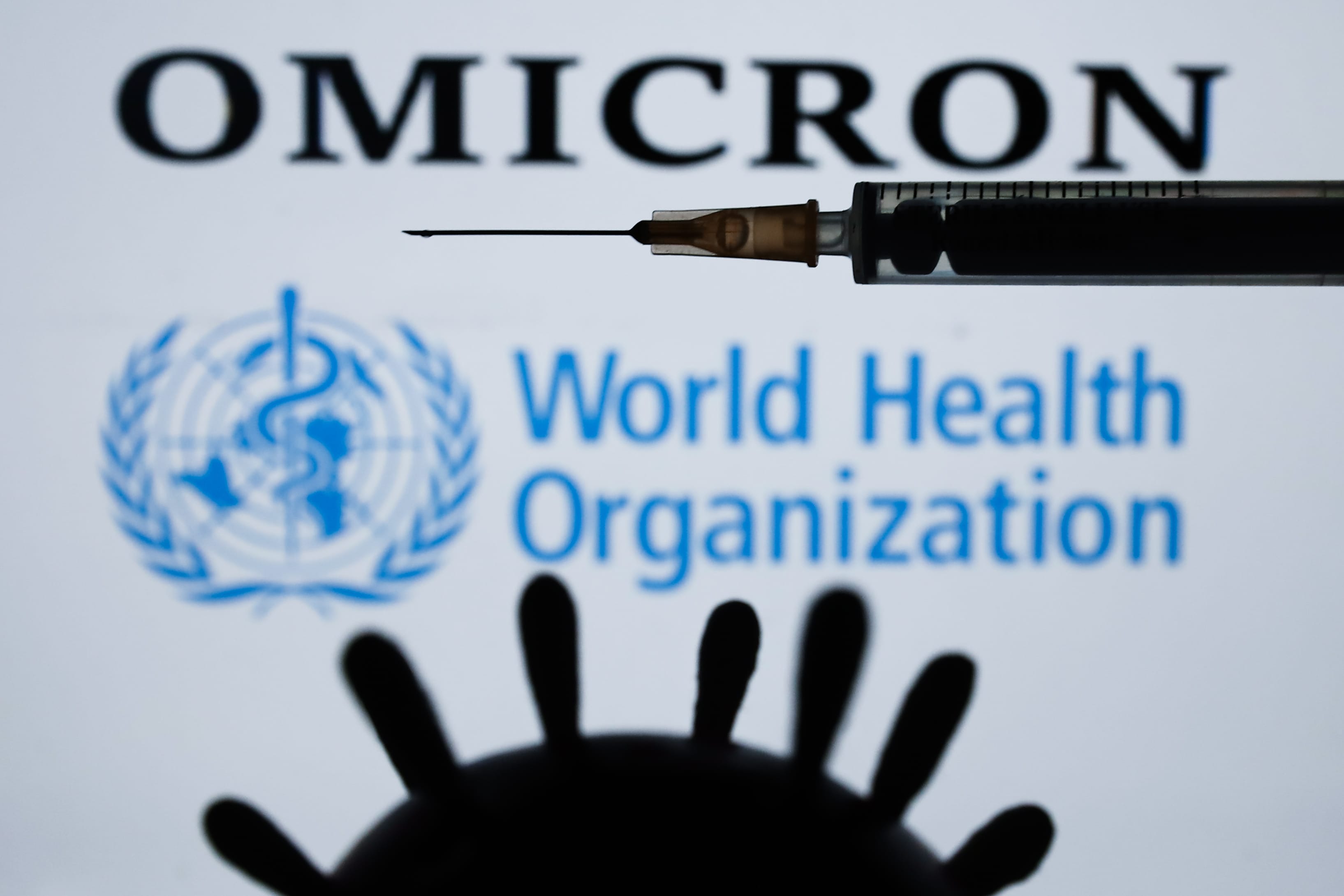LONDON — Two doses of the Oxford-AstraZeneca or Pfizer–BioNTech Covid-19 vaccines are substantially less effective at warding off omicron compared to previous variants of the coronavirus, scientists have found.
However, the researchers were optimistic that a booster shot would improve immunity against the new, highly transmissible variant.
In a new study announced on Monday, researchers from the University of Oxford tested blood samples of people 28 days after their second dose of either vaccine.
When omicron was introduced to those samples, scientists reported “a substantial fall” in the neutralizing antibodies that fight off Covid compared to the immune responses seen against earlier variants.
The research paper noted that some vaccine recipients “failed to neutralize [the virus] at all.”
“This will likely lead to increased breakthrough infections in previously infected or double vaccinated individuals, which could drive a further wave of infection, although there is currently no evidence of increased potential to cause severe disease, hospitalization or death,” the study’s authors said.
The pre-print study, which is yet to be peer reviewed, was published on the MedRxiv server.
Gavin Screaton, head of Oxford University’s Medical Sciences Division and lead author of the paper, said in a press release on Monday that the findings should “press home the message that those who are offered booster vaccination should take it.”
“Whilst there is no evidence for increased risk of severe disease, or death, from the virus amongst vaccinated populations, we must remain cautious, as greater case numbers will still place a considerable burden on healthcare systems,” he warned.
“Vaccination induces many arms of our immune system, including neutralizing antibodies and T-cells,” added co-author Teresa Lambe, a professor of vaccinology at the University of Oxford.
“Real-world effectiveness data has shown us that vaccines continue to protect against severe disease with previous variants of concern. The best way to protect us going forward in this pandemic is by getting vaccines in arms.”
A report published by the U.K.’s Health Security Agency on Friday estimated that two doses of a Covid vaccine were significantly less effective at preventing symptomatic disease through infection from the omicron variant compared to delta. However, the report noted that after a booster dose, vaccines were thought to be 70 to 75% effective at preventing symptomatic infections.
“With previous variants, vaccine effectiveness against severe disease, including hospitalization and death, has been higher than effectiveness against mild disease,” the UKHSA said. “It will be a few weeks before effectiveness against severe disease with Omicron can be estimated, however based on this experience, this is likely to be substantially higher than the estimates against symptomatic disease.”
In a televised statement on Sunday, U.K. Prime Minister Boris Johnson warned Britain faces a “tidal wave” of Omicron infections, and announced that the country would be speeding up its booster program to offer all adults a third dose of a vaccine by the end of the year. The government had previously been aiming to extend its booster scheme to all over-18s by the end of January.
Johnson’s statement came after the chief medical officers of England, Scotland, Wales and Northern Ireland raised the U.K.’s coronavirus threat level to four — the second highest level — in light of the spread of omicron.
Elsewhere, an Israeli study published on Saturday found that a three-dose course of the Pfizer-BioNTech vaccine provided significant protection against the omicron variant. Israel began its booster program in July.
The findings from Israel came after researchers in South Africa found omicron could partially evade the immunity from two shots of the Pfizer-BioNTech vaccine.
The omicron variant, thought to be more infectious than its predecessor delta, was first identified in South Africa in November and has since spread to at least 38 countries around the world and 25 U.S. states.
